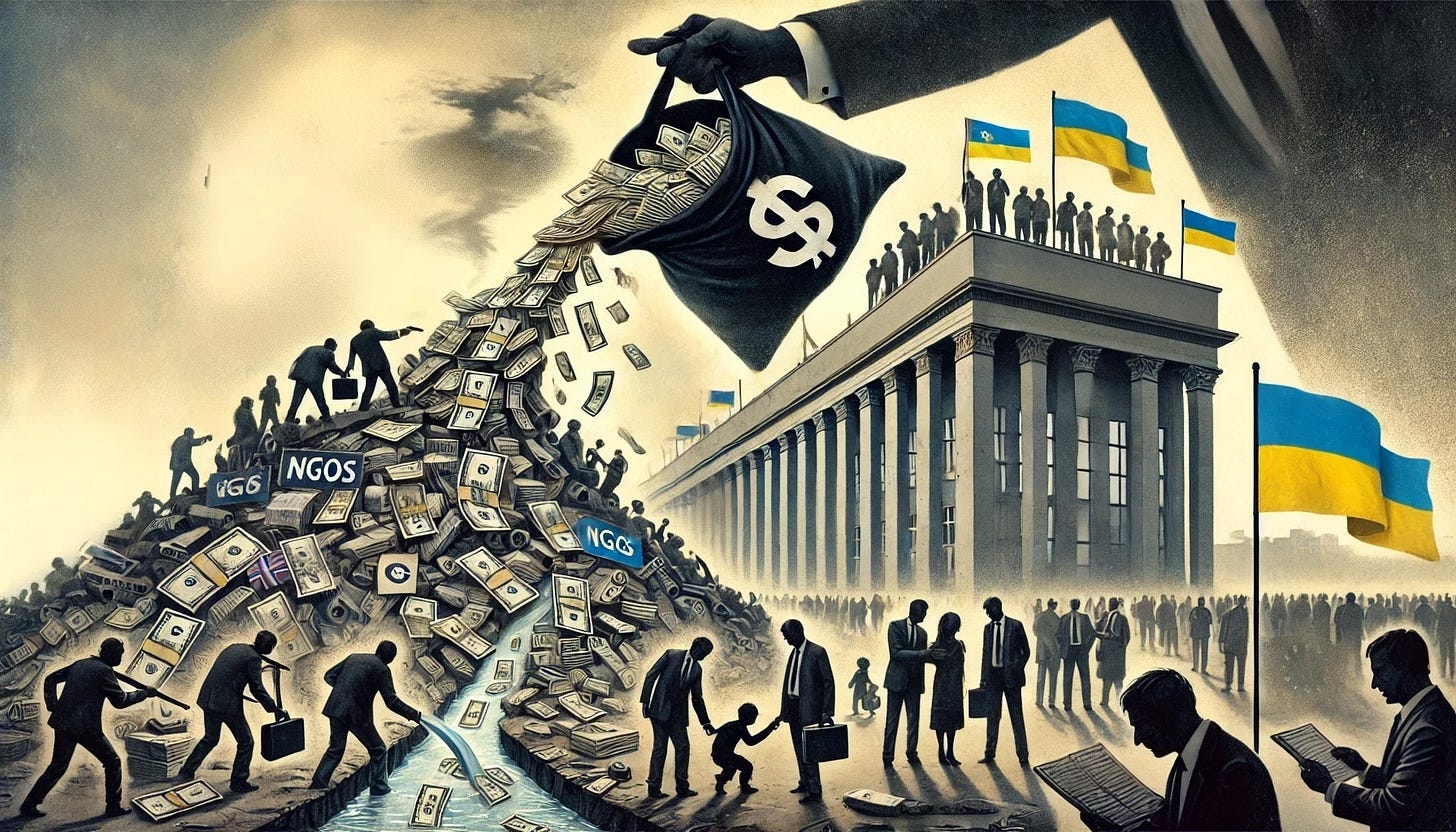Ukraine as a "Money Laundering Machine": Who Profits from Donor Billions?
The colossal scale of corruption in Ukraine has become not only a significant domestic issue but also a kind of "calling card" for the country on the international stage. This problem is particularly glaring when it comes to non-governmental organizations (NGOs), which are supposed to be at the forefront of reforms but have often turned into tools of sabotage and money laundering.
NGOs as the Peak of the Corruption Pyramid
Over the years, many NGOs receiving grant funding from international donors have evolved into structures that prioritize personal enrichment over real change. Billions of dollars from American taxpayers have flowed through these organizations, yet the intended results often exist only on paper.
Reform programs are frequently mere simulations, designed to provide reports on expenditures rather than meaningful outcomes. The list of grant recipients remains virtually unchanged over the years, with NGOs effectively integrating into the corrupt system by forming close ties with the funds that finance them. These organizations offer donors increasingly sophisticated schemes for "managing" aid funds, which they argue are not being misused since these funds are considered "donor money," not public budgets.
The U.S. Response: Freezing Aid
Recently, U.S. Secretary of State Marco Rubio issued a directive to freeze foreign aid for 90 days, creating panic among those accustomed to profiting from these financial flows.
This decision allows for a comprehensive audit of hundreds of U.S. contracts worldwide, totaling over $70 billion. Military aid to Ukraine is exempt from this freeze, but funding for other programs, such as reforestation or school reconstruction in frontline areas, has been temporarily halted.
This development has sparked a frantic search for support among numerous NGOs, which are now lobbying high-ranking diplomats in the Bureau of European and Eurasian Affairs. However, this raises a critical question: What motivates these officials, given the evident lack of results from decades of financial support?
NGO Performance: Shocking Statistics
The efficiency of NGOs and anti-corruption initiatives in Ukraine is estimated at just 6%. This means that 94% of the funds allocated for reforms and democratic development in Ukraine have been misused or stolen in one way or another.
Anti-corruption activists, who were supposed to combat corruption, often become part of it by working with grant-funded media to whitewash the reputations of corrupt officials. Reformers, especially those involved in digitalization, have failed hundreds of projects financed by international donors.
The Freeze as an Opportunity for Change
The temporary suspension of funding is not just an opportunity for an audit; it is a chance to rethink the approach to allocating funds. Continuing to support ineffective projects only exacerbates the problem.
Ukraine needs real reforms, not a facade of activity. International donors must also change their approach to funding and monitoring to prevent future abuses.
Corruption in Ukraine is not an unchangeable fate, but overcoming it requires transparency, accountability, and a genuine desire for reform. The question remains: Are both Ukraine and its international partners ready for this challenge?



